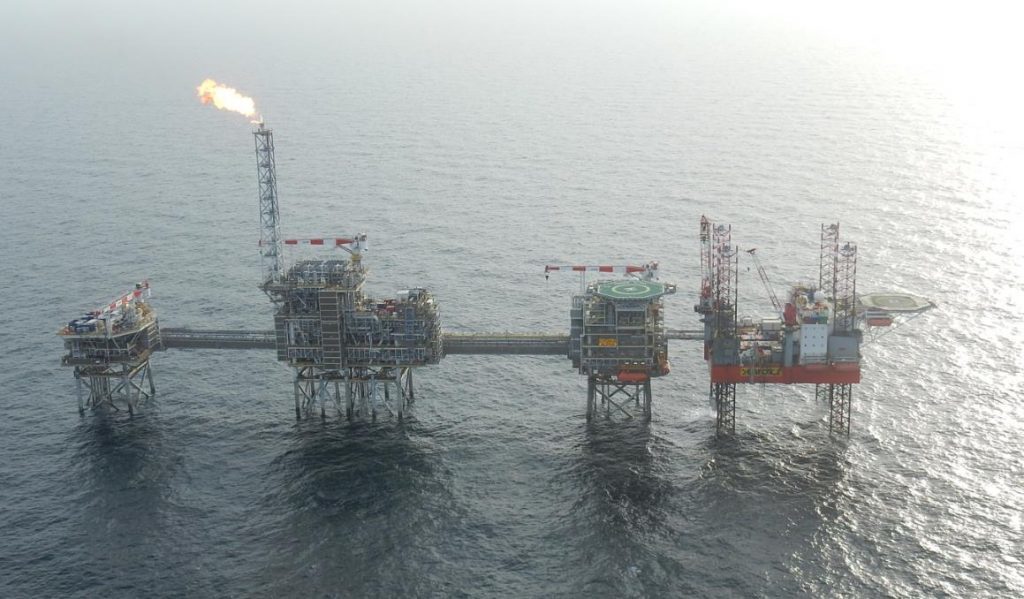
A boss at Neptune Energy has suggested the firm is prepared to flex its muscles in an increasingly hot UK North Sea mergers and acquisitions (M&A) market.
Alexandra Thomas, UK managing director at the private-equity backed player, said the region was still “full of opportunities”.
And Neptune will “absolutely go for it” if the right opportunity comes along, Ms Thomas said, adding: “So watch this space.”
North Sea firms have engaged in a flurry of buying and selling in 2021, encouraged by rallying oil and gas prices and the UK’s low tax rate.
This week, Neo Energy swooped for Zennor Petroleum for £450 million, building on last month’s agreement to purchase a package of assets from ExxonMobil for more than £700m.
And little-known Waldorf Petroleum, of Aberdeen, moved in for Cairn Energy’s non-operated stakes in the Kraken and Catcher fields.
Energy research and consultancy firm Wood Mackenzie said UK disclosed spend had already reached £1.95 billion in 2021, surpassing last year’s total.
A further £3.6bn of assets could change hands this year, Woodmac said.
Neptune made headlines through its £4bn acquisition of Engie’s exploration and production business, completed in 2018.
That deal gave it an operated stake in the huge Cygnus gas field in the southern North Sea.
Backed by China Investment Corporation and funds advised by Carlyle Group and CVC Capital Partners, Neptune agreed to acquire the Norwegian and UK portfolios of Edison E&P from Energean in October 2019.
But Neptune pulled the plug on the deal, which would have given it 25% of Cnooc’s 250 million barrel Glengorm discovery, in May 2020, following a collapse in commodity prices.
Asked whether Neptune could revisit the deal, Ms Thomas said Neptune was “always looking” at growth opportunities and that nothing was “off the table”.
But she said it was “too early to comment” on potential talks or deals with any parties.
Ms Thomas was speaking after Neptune published its full-year 2020 results, which showed pre-tax losses of £240m, against profits of £485m in 2019.
Last year’s deficit was largely down to impairments of £235m, related to lower long-term commodity price assumptions and “underlying reservoir performance” at some fields.
Revenues dropped 29% year-on-year to £1.13 billion in 2020.
Chief executive Jim House said the company’s liquidity of £930m at year-end meant it had “headroom” for “value-accretive growth opportunities”.
The company also has operations in North Africa and Asia Pacific and is, therefore, not constrained to the UK M&A market.
Plenty of scope for organic growth
Ms Thomas stressed that Neptune’s existing portfolio gave the company plenty of scope for growth.
A rig has started drilling the first of four wells on the 50m barrel Seagull field, being developed as a tieback to BP’s Etap platform.
The project will boost Neptune’s output by 15,000 barrels of oil equivalent (boe) per day when it starts up in early 2023.
Neptune, as operator, holds 35% of Seagull, BP has 50% and Japex has 15%.
Meanwhile, appraisal drilling on the Total-operated Isabella well, in which Neptune holds a 50% stake, is now scheduled for early 2022.
The firm expects to pump out 130-145,000 boe per day in 2021 and is determined to reach 200,000 in 2023.
Neptune also revealed it had commissioned a study to review options for reducing the Cygnus platform’s carbon intensity, including electrification.
The firm said Cygnus had one of the lowest carbon intensities of all platforms in the UK North Sea, but is focused on reducing its environmental impact further.
Neptune is one of several oil firms looking at powering their UK offshore platforms with green electricity delivered from shore via cable, or from nearby offshore wind farms.
Ms Thomas said the study, being carried out by the OGTC in Aberdeen, would look to identify technologies for overcoming challenges to lowering emissions.
She said Neptune could also “leverage its existing experience” of electrifying fields offshore Netherlands and Norway.
Recommended for you


